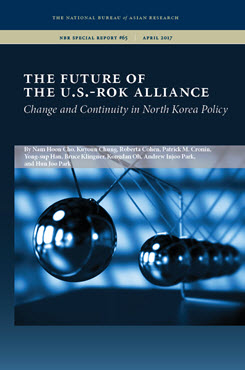Recasting the North Korean Problem
The Nexus between Security and Human Rights
This essay presents current approaches to the problem of a survival-driven North Korean regime and emphasizes the importance of recasting the problem through the existential perspective of ordinary people in North Korea.
EXECUTIVE SUMMARY
MAIN ARGUMENT
Neither the Sunshine Policy nor international sanctions and other pressures have proved adequate in bringing about regime change and thereby fundamentally improving humanitarian conditions in North Korea or the security situation on the Korean Peninsula. Nonetheless, the North Korean regime’s demise is actually only a matter of time over the long run. Yet, as suggested by the preliminary results of the Korea Development Institute’s ongoing research into the state of North Korean social capital, the socio-psychological obstacles to human trust and cooperation may be no less formidable a challenge to overcome in the process of longer-term normalization and development of society than security or political challenges. Hence, while managing the North Korean problem with as much balance and common sense as possible, simultaneously developing policies to properly diagnose and address the socio-psychological pathologies of the North Korean people would be wise and critical.
POLICY IMPLICATIONS
- Further studies are needed for deeper understanding on the pathological state of North Korean society, culture, and psychology to provide more practical, effective, and empowering policy prescriptions.
- Helping ordinary North Koreans overcome their socio-psychological inhibitions and work together for their common good requires deliberate and dedicated policy attention on providing them with a just and fair system of public service, equal educational opportunities, decent and meaningful jobs, and independent, community-building media, among other things.
- Creating and nurturing an increasing number of role models, especially among the 1.5 and second-generation North Korean defectors, may be one of the best ways to help restore human dignity and individual freedom to ordinary people in North Korea.


